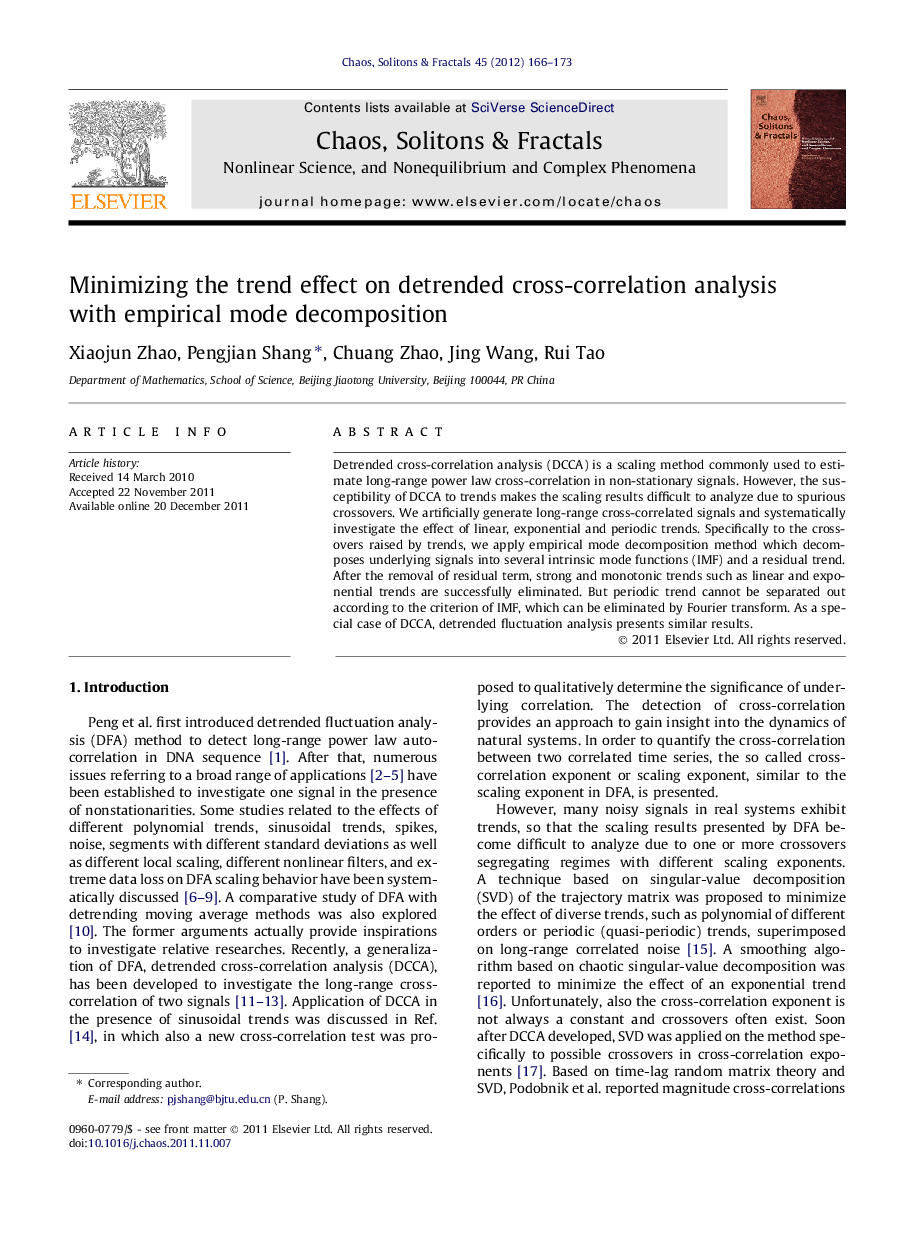| Article ID | Journal | Published Year | Pages | File Type |
|---|---|---|---|---|
| 1889652 | Chaos, Solitons & Fractals | 2012 | 8 Pages |
Detrended cross-correlation analysis (DCCA) is a scaling method commonly used to estimate long-range power law cross-correlation in non-stationary signals. However, the susceptibility of DCCA to trends makes the scaling results difficult to analyze due to spurious crossovers. We artificially generate long-range cross-correlated signals and systematically investigate the effect of linear, exponential and periodic trends. Specifically to the crossovers raised by trends, we apply empirical mode decomposition method which decomposes underlying signals into several intrinsic mode functions (IMF) and a residual trend. After the removal of residual term, strong and monotonic trends such as linear and exponential trends are successfully eliminated. But periodic trend cannot be separated out according to the criterion of IMF, which can be eliminated by Fourier transform. As a special case of DCCA, detrended fluctuation analysis presents similar results.
► Investigate the effects of linear, exponential and periodic trends on DCCA. ► Apply empirical mode decomposition to extract trend term. ► Strong and monotonic trends are successfully eliminated. ► Get the cross-correlation exponent in a persistent behavior without crossover.
